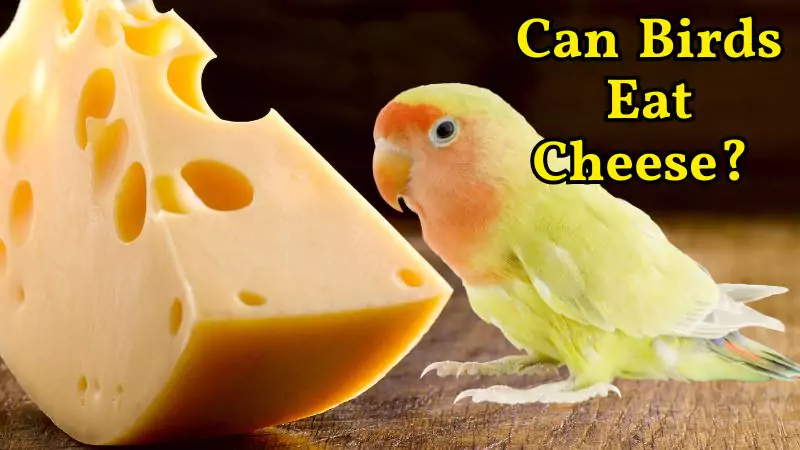Introduction
One of the most common questions about bird food is – can birds eat cheese? “Can birds eat cheese?” If the answer to this question is very clear and humane, through this guide we will be able to know whether the birds can eat cheese or not, it will be given to us completely. To keep Devo birds healthy, cheese is a bit of a chore, and it’s important to follow directions and send a safe message.
Can Birds Eat Cheese?
Can birds eat cheese? Many bird lovers and nature lovers want to know the answer to this question. Simply put, “Yes, but with caution.” Cheese is not always beneficial for birds. It is very important to know how it affects their nutrition and health. In this article, we will explain the topic “can birds eat cheese” in simple language. This is very important for those who take care of birds.
Understanding Bird Diet Basics
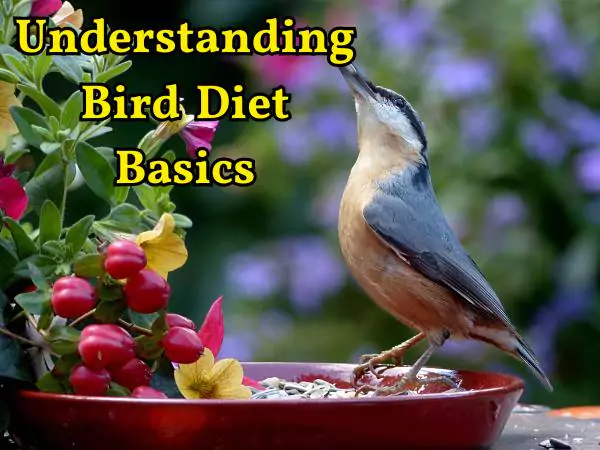
The type of food that birds eat is very important. Generally, birds eat natural foods such as seeds, fruits, insects, etc. To answer this question, you need to understand that cheese is different from their normal food and it contains lactose. Therefore, it is very important to provide proper and nutritious food for birds. Keeping a balanced diet keeps their body healthy. Many birds’ bodies are not designed to digest cheese, so caution is required.
Cheese is a bit different in the diet of birds, as it is rich in protein and calcium, but many cheeses are high in salt and lactose, which are harmful to birds. So the answer to the question “can birds eat cheese” is that they can eat it in moderation. Fresh, unsalted, and unprocessed cheese is best for birds to eat.
How Birds Digest Food
Birds have a different digestive system than humans. They are good at digesting natural foods. In the case of “can birds eat cheese”, their body’s ability to digest lactose is low. Many birds cannot digest dairy foods properly. So it can be difficult for them to eat cheese.
- Birds have hard and specialized stomachs.
- Lactose digestion is a problem.
- Natural foods are better for them.
- Cheese can cause some digestive problems.
- Most birds do not like milk.
Therefore, the answer to the question “can birds eat cheese” can be ‘yes, but in limited and careful’. Cheese is not a direct food for them.
Can Birds Digest Dairy Properly?
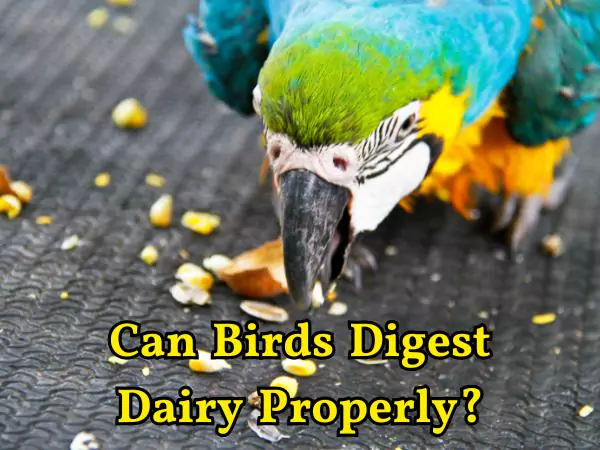
Many birds cannot digest milk and its ingredients. So the answer to the question “can birds eat cheese” is that they cannot always digest dairy properly. Giving too much cheese can cause stomach problems.
- Dairy foods contain lactose.
- Many birds are unable to digest lactose.
- Excessive cheese causes stomach pain.
- Feeding in limited quantities is less of a problem.
- You should be careful with dairy products.
Many birds still stay away from dairy. So they should be careful with dairy foods.
What Experts Say About Cheese for Birds
Bird experts say that you should be very careful about “can birds eat cheese”. Some unsalted, low-fat cheese can be safe for birds, but avoid feeding too much cheese.
- Bird experts’ advice.
- It is better to give cheese with less salt and fat.
- Excess cheese can cause disease.
- Natural food should be the mainstay.
- Cheese as a reward in limited quantities.
Experts say that cheese should not be a regular part of birds’ food. They are happy if given a little occasionally, but if given too much, it is harmful.
Can Pet Birds Eat Cheese?
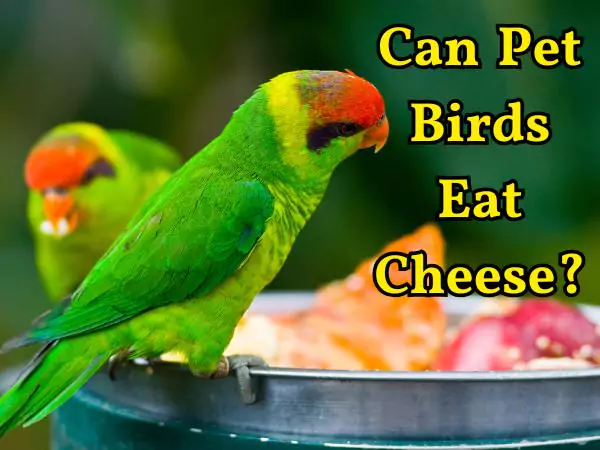
Pet birds often become like members of our family. So we are very conscious about what they eat. How safe is cheese for pet birds is a matter of curiosity for many. In fact, whether pet birds eat cheese or not and how safe it is depends on the type and amount of cheese.
Many birds eat cheese and it can be a source of protein and calcium for them. However, excess cheese can be harmful to birds, as it contains sodium and fat.
Therefore, it is important to control the amount when feeding cheese to pet birds. You need to take care of the health of the bird.
Can Parrots Eat Cheese?
Can parrots eat cheese? It may be safe for parrots to eat cheese in small amounts, but giving too much cheese can cause health problems. Therefore, cheese should be given as limited as possible and with caution.
- Parrots can eat cheese occasionally to get protein.
- Cheese should be fresh and low in salt.
- Giving too much cheese can cause throat problems for birds.
- Observe the bird’s behavior and health after eating cheese.
- You can give other natural protein sources instead of cheese.
It is important to be careful when using cheese for parrots. Always feed it in small pieces and from time to time.
Can Budgies Eat Cheese?
Budgies are usually small birds, so their digestive system is more sensitive. Can budgies eat cheese is a question that many people have. Budgies can eat cheese in small quantities and occasionally, but giving too much can cause stomach problems.
- Cheese should be given very little to budgies.
- If you give cheese, it must be low in salt.
- Excess fat and salt are harmful to budgies.
- If your budgie does not have good digestion, avoid cheese.
- It is better to use alternative foods for protein.
Be careful when feeding cheese to budgies and do not overfeed.
Can Baby Birds Eat Cheese?
Feeding cheese to baby birds can sometimes be dangerous. Their digestive system is not yet fully developed. Therefore, it is generally not safe for baby birds to eat cheese.
- Cheese should be avoided for babies.
- There is a high risk of digestive problems and allergies.
- Feed safe and natural foods for nutrition.
- Breast milk or specific food for birds is best for babies.
- Feed after consulting a doctor.
- It is safe to avoid giving cheese to baby birds.
Recommended Serving Size if Allowed
The amount of cheese fed to birds should be kept very limited. Usually a very small portion of the bird’s weight.
- Just a few grams of cheese per day is enough.
- Cut into small pieces so that it is easy to digest.
- It is best to feed 2-3 times a week.
- Cheese must be low in salt and fresh.
- Give it along with other nutritious foods.
- Cheese can be somewhat safe for birds if you control the amount.
Can Wild Birds Eat Cheese?

Wild birds usually eat their own food in nature. There is a lot of disagreement about how safe cheese is for them. Although it is not right to feed cheese to wild birds, some wild birds may occasionally eat cheese. However, cheese can be harmful to wild birds in the long run.
The excess salt and processed ingredients in cheese are dangerous to the health of wild birds. Therefore, it is important to be aware of feeding cheese to wild birds.
Is It Safe to Leave Cheese Outdoors for Birds?
It is generally not safe to leave cheese outdoors for wild birds. It can sometimes be harmful to birds.
- Cheese contains salt and preservatives.
- Excess fat can cause disease in wild birds.
- Cheese spoils quickly and breeds bacteria.
- Wild birds’ natural diet is disrupted.
- Environmental pollution and bird illness increase.
- So it is best to avoid leaving cheese outdoors for wild birds.
How do wild birds react to cheese?
Wild birds can eat cheese in some cases, but they are usually wary of new foods. Sometimes they can even get sick from eating cheese.
- Some birds show interest, while others avoid it.
- Eating cheese can cause digestive problems.
- Birds may change their eating and behavior.
- They become weak when they are sick.
- Some birds can quickly become accustomed to it, which is harmful.
- It is important to be careful about feeding cheese to wild birds.
Seasonal Impact: Cheese in Summer vs Winter
Cheese has different effects on birds in summer and winter. Cheese spoils quickly in summer, but may spoil less in winter, but the effect of salt increases.
- Cheese rots quickly in summer and bacteria grow.
- It is difficult for birds to control salt in their bodies in winter.
- Birds may have gas problems in summer.
- Excess fat in the body can cause diseases in winter.
- Birds’ eating habits also change with the change of season.
Therefore, it is important to consider feeding cheese according to the season.
Types of Cheese: Which Are Safer or Harmful for Birds
Not all types of cheese are equally safe for birds. The differences between hard, soft, and processed cheeses and their effects are different. Many cheeses contain salt, preservatives, and additives that are harmful to birds. These are things to keep in mind when choosing a safe cheese.
Hard Cheese vs Soft Cheese
Hard cheeses like Parmesan contain less salt and fat, while soft cheeses like Brie and Camembert contain more salt and fat. Hard cheeses may be safer for birds.
- Hard cheeses contain less moisture.
- Soft cheeses spoil quickly.
- Soft cheeses contain more salt.
- Hard cheeses are easier to digest.
- Soft cheeses are more likely to harbor bacteria.
Although hard cheeses are relatively good for birds, the amount should be kept low.
Processed Cheese vs Natural Cheese
Processed cheeses contain various types of preservatives and chemicals, which are harmful to birds. Safer than natural cheese.
- Processed cheese has color and flavor enhancement.
- Natural cheese does not contain additional chemicals.
- Processed cheese causes digestive problems.
- Natural cheese is good for your health.
- It is better to give natural cheese to birds.
Therefore, natural cheese should always be chosen for birds.
Can Birds Eat Cheese Puffs or Flavored Cheese?
Cheese puffs or flavored cheese are completely unsuitable for birds. They contain excess salt, oil, and various chemicals.
- Cheese puffs contain a lot of fat.
- The salt content is very high.
- Artificial colors and flavors are harmful to birds.
- Birds’ digestion is disrupted.
- In the long run, it affects the health of birds.
Therefore, cheese puffs or flavored cheese should never be given to birds.
Salt, Preservatives, and Additives – Dangerous for Birds
The salt and preservatives in cheese have a negative effect on the kidneys and liver of birds. Therefore, it is not safe for birds to eat such cheeses.
- Excess salt causes dehydration in birds.
- Preservatives and additives cause allergies.
- Kidneys and liver are damaged.
- Normal eating habits are disrupted.
- Health problems arise in the long run.
Therefore, it is best to choose salt and preservative-free cheeses for birds.
Risks of Feeding Cheese to Birds
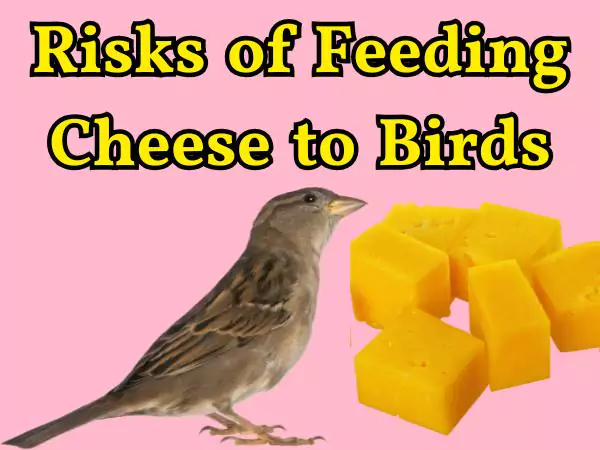
Feeding cheese to birds can pose some risks. Many birds, especially wild birds, cannot digest dairy foods well. Therefore, eating cheese can cause stomach problems. This can have a negative impact on the health of the bird.
The answer to this question is, some birds can eat cheese in small amounts, but it can be risky for them. Therefore, it should be fed with care.
When feeding cheese, one should keep in mind the potential harm to birds. These risks are detailed below.
- Possibility of lactose intolerance.
- Digestive problems.
- Allergic reactions.
- Long-term health effects.
- Nutritional imbalance.
If these risks are not considered, it can be dangerous for the health of the bird. Therefore, it is important to have the right knowledge on the question “can birds eat cheese”.
Lactose Intolerance in Birds
Many birds do not have the ability to digest lactose. Cheese contains lactose. So the only caveat to the question “can birds eat cheese” is that they may have lactose intolerance. This means that birds may experience stomach pain and diarrhea if they eat cheese.
Symptoms of Lactose Intolerance are:
- Stomach bloating
- Diarrhea
- Nausea
- Discomfort
- Fainting (in very severe cases)
Once you see these symptoms, you should stop giving cheese to your bird. Although birds can sometimes eat a little cheese, this risk should still be kept in mind.
Possible Digestive Issues
Birds have a very delicate digestive system. The answer to “can birds eat cheese” is that eating too much cheese can cause digestive problems. The bird’s stomach may swell, vomit, or have diarrhea. The fat and salt levels in cheese are also harmful to birds.
Digestive problems may include:
- Stomach pain.
- Gas problems.
- Nausea.
- Diarrhea.
- Reduced food intake.
For this reason, it is a matter of caution for birds to eat cheese. Small amounts and occasional feeding will reduce the problems.
Allergic Reactions or Toxicity
There is often a risk of allergies with “Can birds eat cheese”. Some birds’ bodies may show an allergic reaction to an ingredient in cheese. Sometimes it can also cause poisoning.
Allergy symptoms:
- Red eyes
- Dandruff or itching
- Difficulty breathing
- Unusual weakness
- Changes in behavior
If these symptoms occur, the bird should be taken to the doctor immediately. Such reactions to cheese can be prevented by taking precautions.
Long-Term Health Impacts
The long-term effects of “Can birds eat cheese” should also be considered. Regularly feeding cheese can cause birds to gain weight. Excess fat puts pressure on their heart and liver. This can lead to various diseases.
Long-term risks:
- Obesity.
- Heart problems.
- Liver disease.
- Weakness.
- Weakened immune system.
For this reason, cheese should be given to birds in very limited quantities, and not regularly.
Read More:
- Why are the best Hummingbird plants to attract birds?
- Best and most creative bird cage setup ideas in an amazing!
Conclusion
Although cheese looks delicious and is quite tempting to us, it is not at all safe for birds. Many birds do not have the enzymes to digest dairy products. Therefore, eating cheese can cause gas, diarrhea, or digestive upset in birds.
Can birds eat cheese? — In answer to this question, we can say that it is better not to give cheese for safety reasons. Do you love birds? Then give them food close to nature – fruits, grains, nuts, etc.
FAQs
Can parrots eat cheese safely?
Yes, Chiria cheese parnes can be eaten in quantity, but unsalted cheese parnes should be eaten.
Can wild birds eat cheese scraps?
In nature, birds can eat small amounts of cheese, but rice grains are not inappropriate amounts.
What happens if a bird accidentally eats cheese?
If the bird eats the unharmed cheese, it may not become infected, but may become paralytic.
Can birds eat cheese-flavored chips or puffs?
No, cheese flavored chips or puffs are not edible for birds.
Are there any bird species that can digest cheese?
Some bird species may be cheese, but clarity is not guaranteed.

